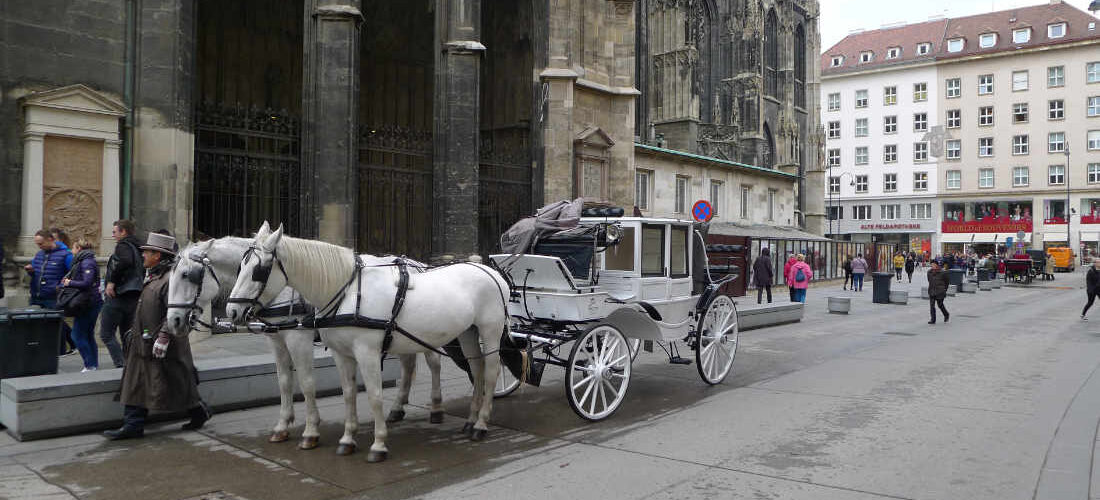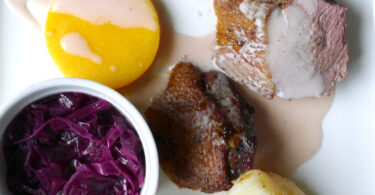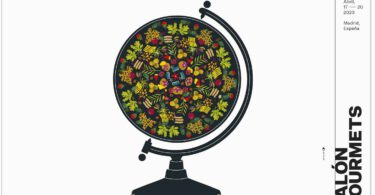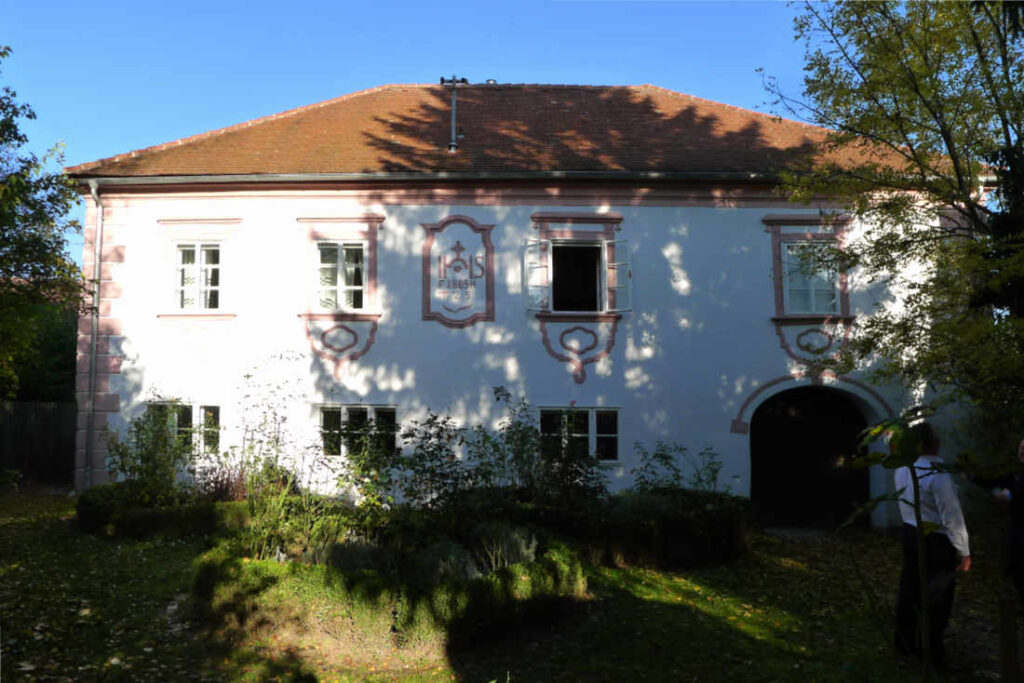
I drink a wonderful Riesling, organically grown, directly from the Heiligenberg at the Hirsch Winery in Kamptal. Wonderfully mineral, complex, very fine aromas.
A real recommendation, the excursion there is offered by the A-Rosa Riva. You can find more information about the winery here: Weingut Hirsch, Kamptal
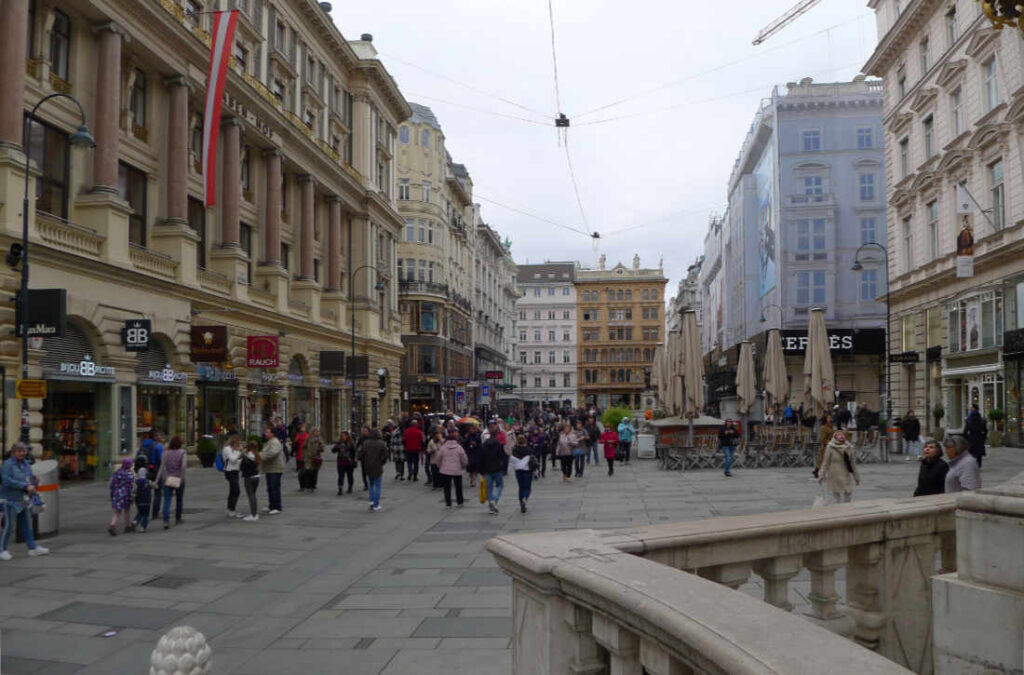
The Riva docks in Vienna, in the morning I travel to the city centre,
on the way to Stephansplatz in the underground, I listen to Beethoven’s Sonata Op.110.
As I climb the escalator, I wipe away the stale air.
The view opens onto an intersection with some impressive department stores. On the corner is an Apple store, in front of it is a large queue of people, the first attraction I catch sight of, crazy world!
It’s cold in Vienna at the end of October. Like any tourist, I walk through Kärtnerstraße, it’s already bustling early.
Some buildings have been rebuilt after the war, capitalist architecture, a little kitchy, surrealistic.
I turn into a side street, cobblestones, as so often in this Viennese district.
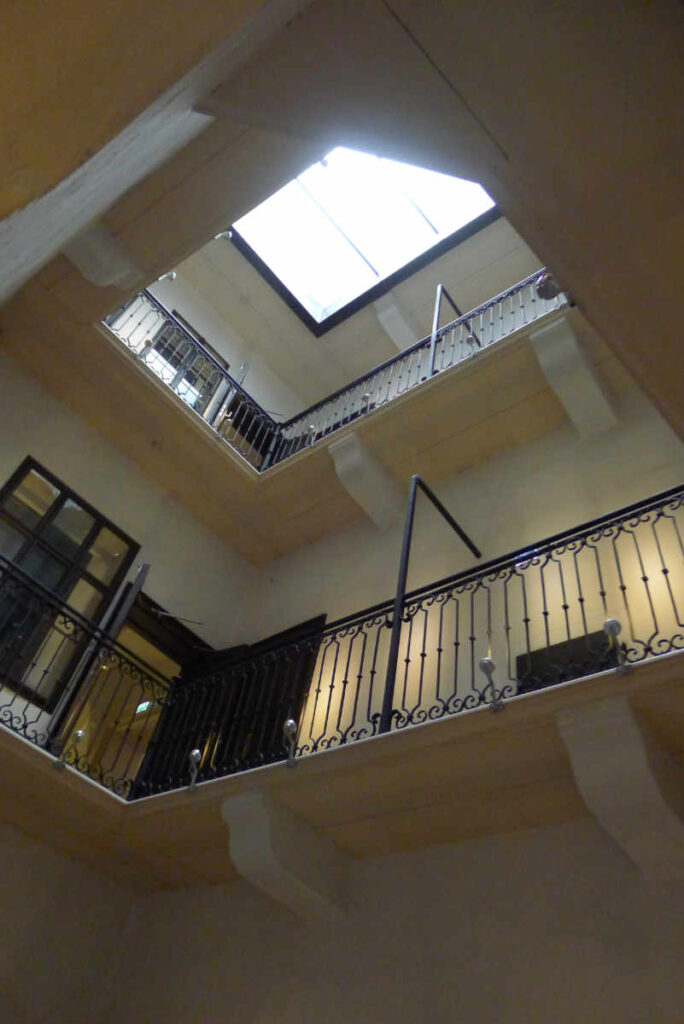
Suddenly I am in front of the Mozart House. I think of my dear deceased father. We didn’t have much in common apart from our love for the composer. But we were able to have long and friendly discussions about Mozart’s music, our most beautiful conversations.
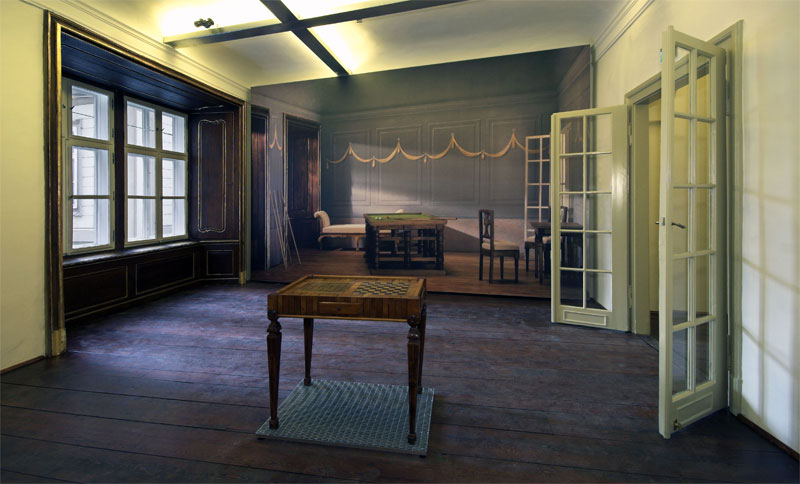
There are surprisingly few visitors in the house. On the ground floor there is a small atrium with exhibits. You linger there briefly until you enter the beautiful staircase. The floors are framed by cast-iron railings. There are two residences on each floor.
It is a large house not far from the cathedral. Mozart lived here with his family between the years 1784 and 1787.
I climb the stairs to Mozart’s appartment, and suddenly I feel smaller and smaller.
The rooms are spacious, one window faces the street.
Is this where Mozart was standing when he composed his Figaro?
Only one room is heated, which even father Leopold complained about in his day.
Imagine the rooms full of visitors, Joseph Haydn sitting on the sofa drinking a glass of wine, singing students practising solfeggio, do-re-mi-fa-sol-la-si-do in the corridors.
Finally they unpack their instruments and play a string quartet, the musicians for it are quickly found, Haydn plays the violin, they cultivate a beautiful friendship.
Mozart writes to his father in April 1784:
Here we have the famous Mantuan Strinasacchi, a very good violinist; she has a lot of taste and feeling in her playing. – I am writing a sonata, which we will play together on Thursday at the theatre at her academy. Then there are quartets by a certain Pleyel; he is a student of Joseph Haydn. If you do not know them yet, try to get them; it is worth the effort. They are very well written, and very pleasant; you will also immediately recognise its masterclass. Good – and happy for the music, if Pleyel is able to remake Haydn for us in his time.
Two years earlier Mozart writes:
…Dearest, best father! I must ask you, for all the world’s sake, give me your consent to marry my dear Constanze…My heart is restless, my head confused, how can one think and work anything useful? I anxiously await your consent, my best father….
Now the Mozart family lives in these large rooms, Constanze chats with the maid in the kitchen while Amadeus plays the piano next door.
Clear, light tones, disarmingly direct. Every room is full of music. This is also where “Figaro” is composed, a magnificent perplexing piece about aristocracy, love and the people.
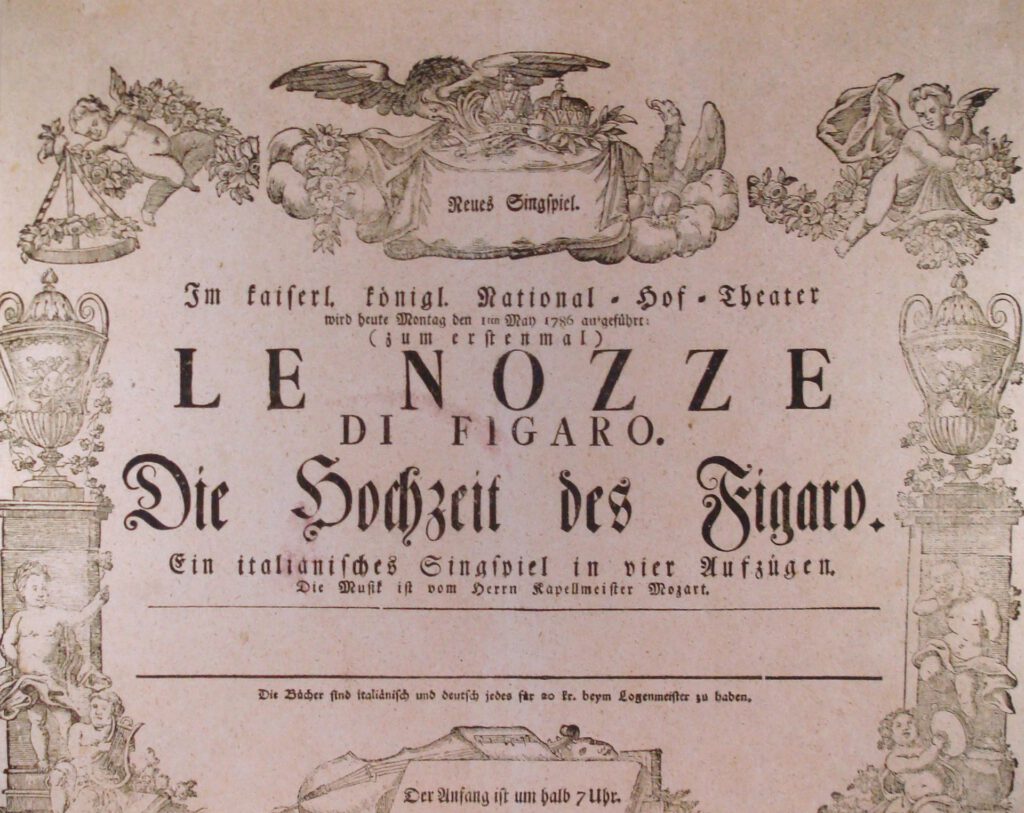
Da Ponte about his piece:
With the Barber of Seville, I had only shaken the state system. With my new work, which was even more outrageous and even more rebellious, I apparently brought the state down completely.
If this piece was allowed, nothing was sacred any more. One abused authority by the most insidious reports; one intrigued with influential authorities; one called on pious ladies; one created enemies for me on the prayer stools of the chapels, and I defended myself against the mean intrigue, according to the people and the place, by my extraordinary patience, my unwavering respect, my persistent obedience, and by good reasons when they wanted to hear them.
This struggle lasted four years. Add to that the five years the piece lay in the desk, and what remains of the topical allusions you insist on recognising in the work? Oh, when I wrote the piece, what is flourishing today had not even begun to germinate; it was a different world.
The piece is explosive, it has to be massively toned down for the libretto, and the text is banned in France. The opera was quickly cancelled in Vienna, but Mozart’s “Figaro” was a huge success in Prague.
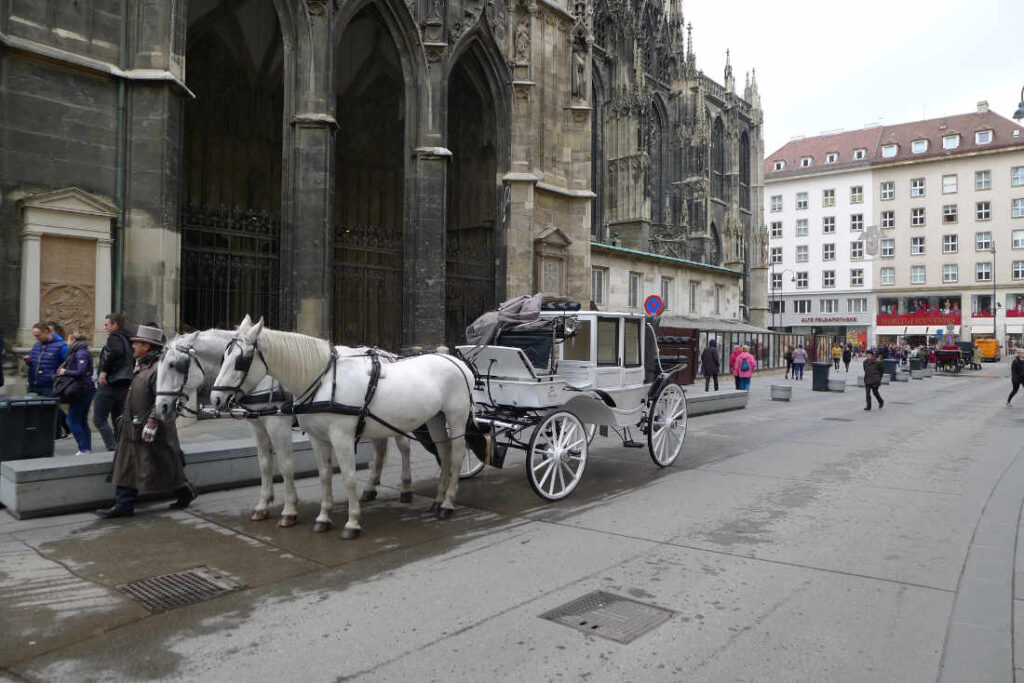
I leave the Mozarthaus, in front of the cathedral there are beautiful Fiakers, for tourists with a fat wallet this is the perfect opportunity to explore the city in the most comfortable way.
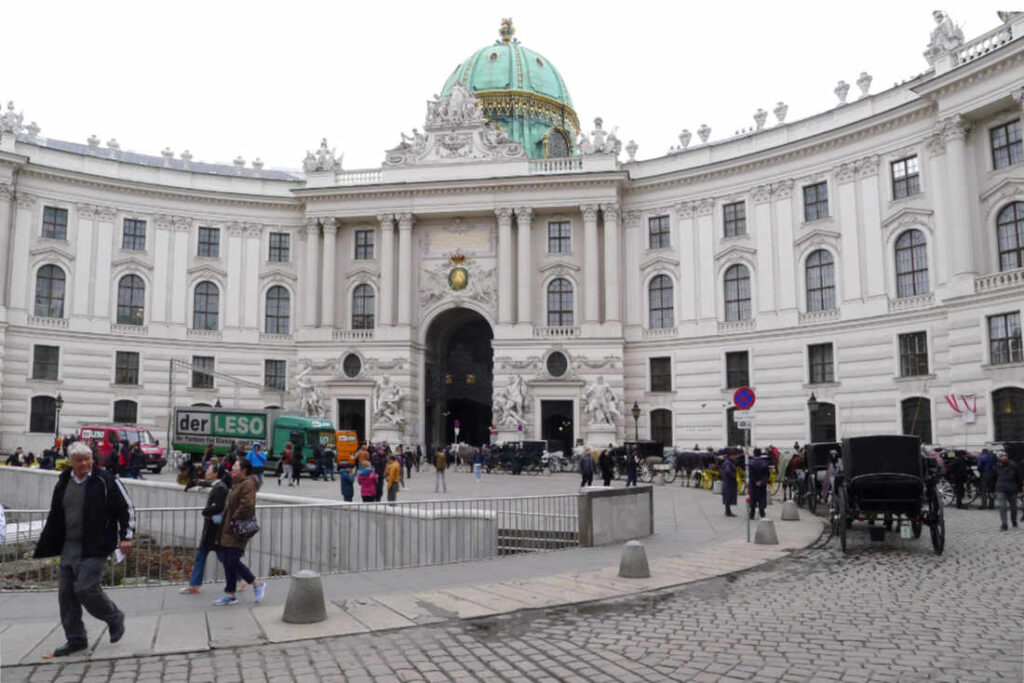
I don’t have much time for the Hofburg, it was the residence of the Habsburgs from the 13th century until 1918. It is a huge architectural ensemble. There is the Schweizertrakt, the Stallburg, the Amalienburg, the Leopoldinischer Trakt and of course the Heldenplatz, just to mention a few of the buildings that belong to the Hofburg.
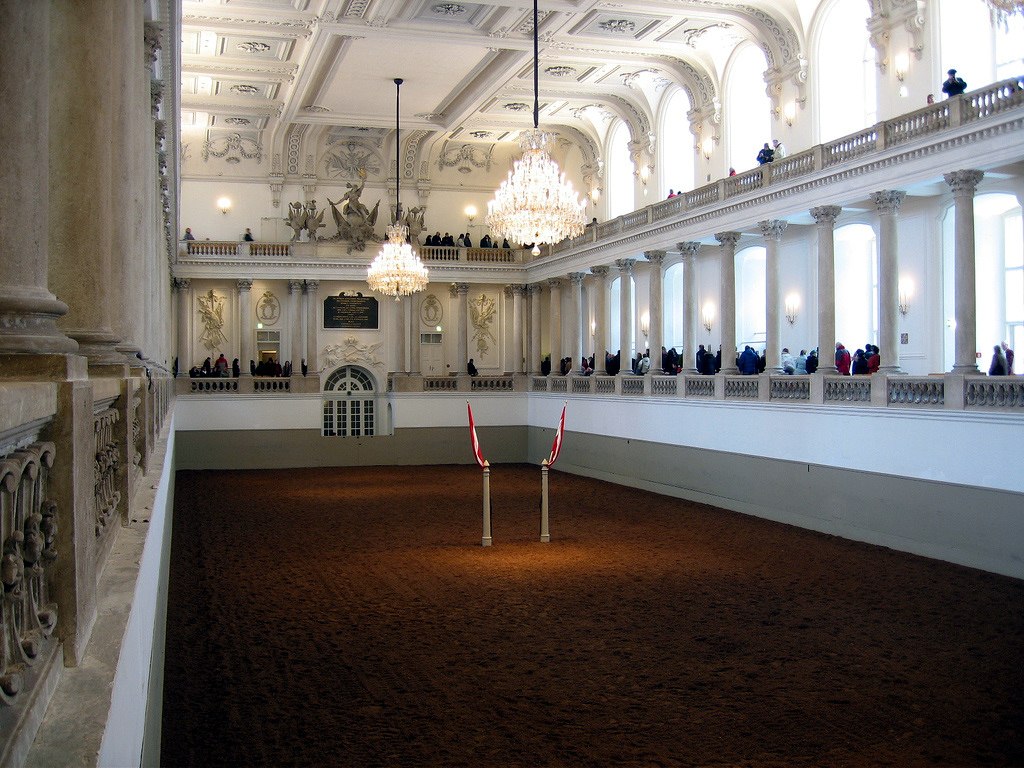
The Spanish Riding School is internationally renowned, the stallions are allowed to perform their dances there under truly imperial conditions.
Read in the next episode: Albrecht Dürer in Vienna, a coffee house, Melk Abbey
![[:de]Grandgourmand, Travel, Food, Lifestyle[:]](https://grandgourmand.de/wp-content/uploads/2023/01/logo_23_1-1.png)
